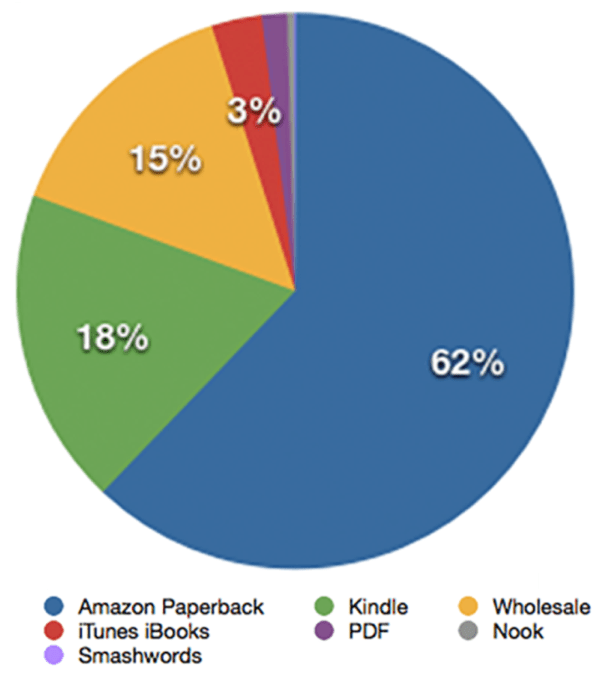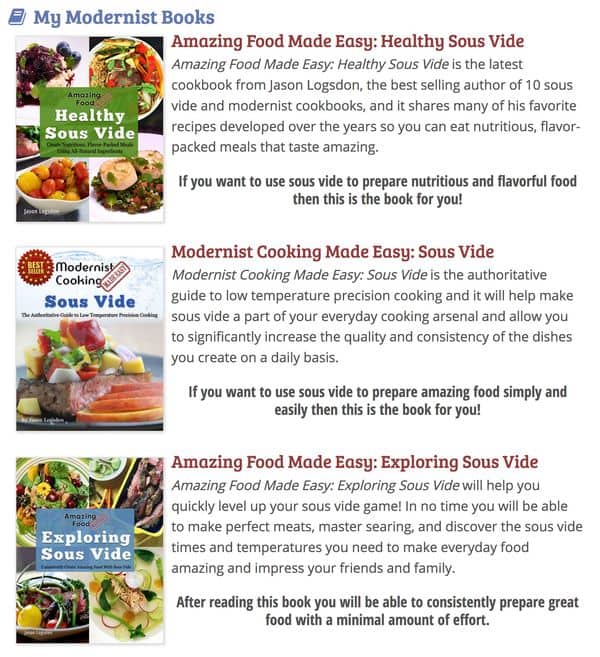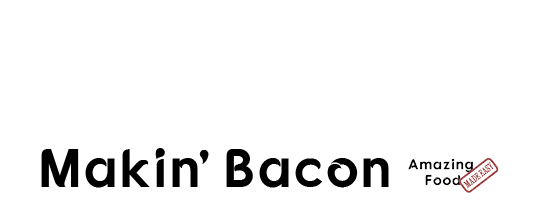 Written by Jason Logsdon
Written by Jason Logsdon
Should You Self Publish a Cookbook?
Click to discover how to serve your Fans and grow your incomeI wanted to discuss the advantages, and disadvantages, of self publishing compared to traditional publishing.
Financial
The largest difference, and why many people choose to self publish even though they could find a traditional publisher, is financial. The two financial components are the royalties, which is the amount you get per book sold, and the advance, which is the money you get paid upfront.
For traditionally published books, the advance and royalties are negotiated ahead of time and depend on how established an author is. In most cases, the advance will be between 5 and 15 thousand dollars and royalties usually falling in the 5% to 8% range. These royalities are usually based off the profit of each book sold, not the list price.

Turning to a self published book, all of the profit is yours. For most printed cookbooks this is about 20% to 40% of the list price, and it's closer to 70% for ebooks. Because of these higher royalties, you only need to sell a fraction as many books in order make the same amount of money as with a traditionally published book.
Now the advance is something that you can't replace through self publishing, but it's important to remember that the advance is not in addition to the royalties, it's just the royalties you are paid upfront. So the higher royalties mean you can often make more in the long run through self publishing.
Distribution

Distribution is always a big concern for authors considering self publishing because of the difficulty getting into Barnes and Noble, Walmart, and other large retail chains. However, while these stores still sell a whole lot of books, they are less important than they used to be. Two years ago, for the first time, more than half of all books were bought online. Amazon alone accounted for 40% of all book sales.
So even if you only sell your cookbook on Amazon, you still have access to almost half of all potential buyers. Also, since turning your book into an ebook is a relatively painless process, it allows you to distribute it through all of the e-readers, adding an even higher distribution. Last year ebooks made up a third of all book sales.
So while it's very hard to achieve the same distribution as a large publisher does, it's easy to access over half of the market, which is more than enough to create a successful book, especially with the much higher royalties.
Speed
A traditionally published book moves slowly. It usually takes 4 to 8 months from the time you hand in the manuscript to the time the book is on sale. For a self published book, this process only takes 1 to 2 weeks. This faster turnaround allows you to capitalize more on book launches and maximize the momentum on your blog.
Marketing

With the advent of blogs, social media, and other ways for authors to easily reach and interact with readers, many traditional publishers are leaning more and more on the authors to market their books themselves.
This means you will have to do much of the marketing work yourself, regardless of how you are published. Now, many publishers can help facilitate interviews and connections, but that is something that many food bloggers do not need as much help with as someone without an existing blog and network of connections.
Ownership
With self publishing, you own all the content and you can use it however you like. I take almost every recipe from my books that I have a photograph for and I re-publish them on my blog. This brings in extra traffic, grows my blog, and helps promote my books all at once. I've also moved content into iPhone apps, custom guides for online retailers, and several other side projects that might not have been possible with a traditionally published book.
Prestige

When people hear that you're an "Author", you normally get a "wow, that's awesome"-type response. Then when you tell them that you're self published, it sometimes turns into a disappointed "oh, so you just like... print it yourself?". Unfortunately, this attitude also exists in many established companies who use having a traditional publisher as a prerequisite to be reviewed or carried in their stores.
There are ways to obscure the fact that you are self published, such as paying for a custom ISBN or selling through certain distributors, but if you do want that outside prestige, sometimes it can be harder to get though self publishing.
Control
If you are published traditionally, especially as a newer author, you have very limited control. If you self publish you have total control. What isn't clear is whether that is a positive or a negative.
Complete control is exactly what it sounds like. You set your writing and publishing schedules. You determine the exact subject your book is about. You are in charge of photographing and testing the recipes. You decide on B&W vs color, print vs ebook, your book title, Amazon sales description, categories, keywords. And much, much more.
In other words. There's a whole lot of things you are making decisions about.
Some people love this. Other people can feel overwhelmed. Some people have trouble setting their own schedules and they hate deadlines, others thrive on it.
So depending on your personality, the total control afforded in self publishing can be a great thing, or a bad thing.
Experience
The other aspect of control that is often overlooked, is that many of the people making the decisions for a traditionally published book are experts at making those decisions. You will be publishing your first book, they will be publishing their hundredth. They have a team of editors, designers, and marketers they know and have worked with for years. You will be going through this process, alone, for the very first time.
You can counteract this somewhat through research and talking with people who have published multiple books, which is what I have tried to facilitate with Self Publishing Made Easy, but it's still something to keep in mind as you consider approaching this process on your own.

Conclusion: Should You Self Publish Your Cookbook?
As you can see there are many factors to consider. I have 1 traditionally published book, 1 semi-traditionally published one, and have been contacted several times by other publishers, but I very much prefer self publishing. It gives you more control over your content, more rights on how to use what you wrote, and it pays a lot better. Plus I don't have to try and convince anyone that I'm worthy, and should be allowed to write a book, I can just write it and sell it to the people who want it.
Do you have a cookbook? How did you go about creating it? Let me know in the Makin Bacon Facebook Group or the comments below.
 Hi, I'm Jason Logsdon! I'm an adventurous home cook and the head writer and photographer for Amazing Food Made Easy. I grew my income to 6-figures by focusing on serving my Fans by providing massive value, and I want to help you do the same.
Hi, I'm Jason Logsdon! I'm an adventurous home cook and the head writer and photographer for Amazing Food Made Easy. I grew my income to 6-figures by focusing on serving my Fans by providing massive value, and I want to help you do the same.














